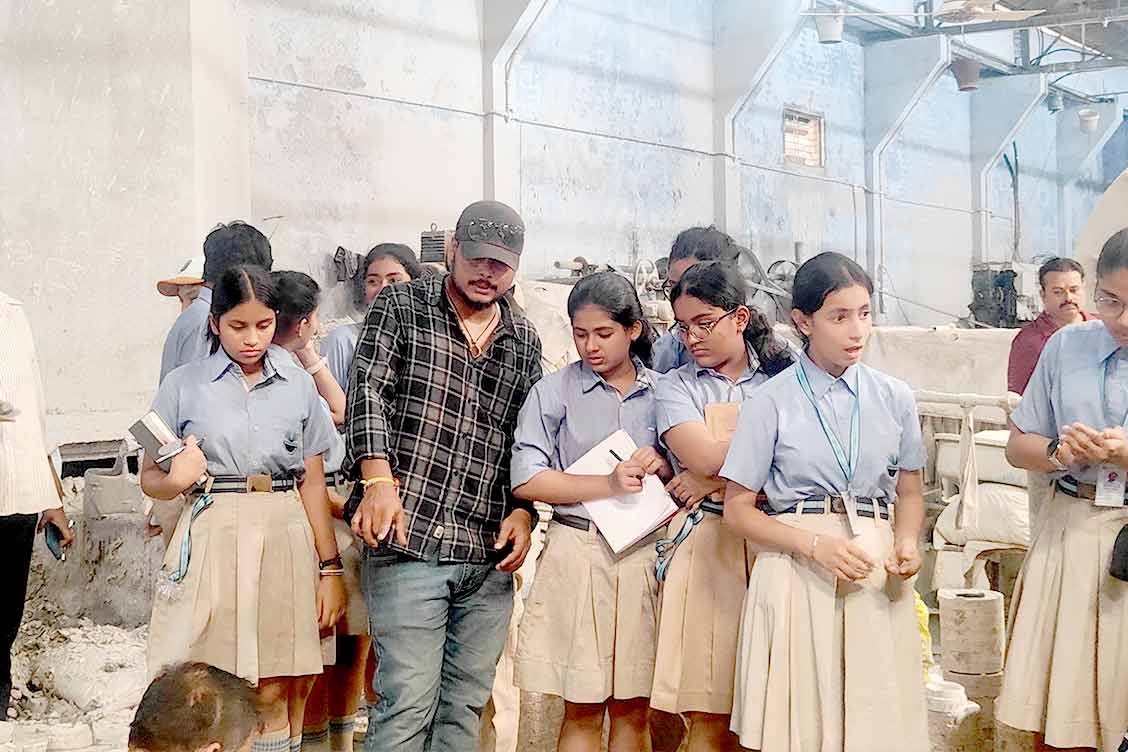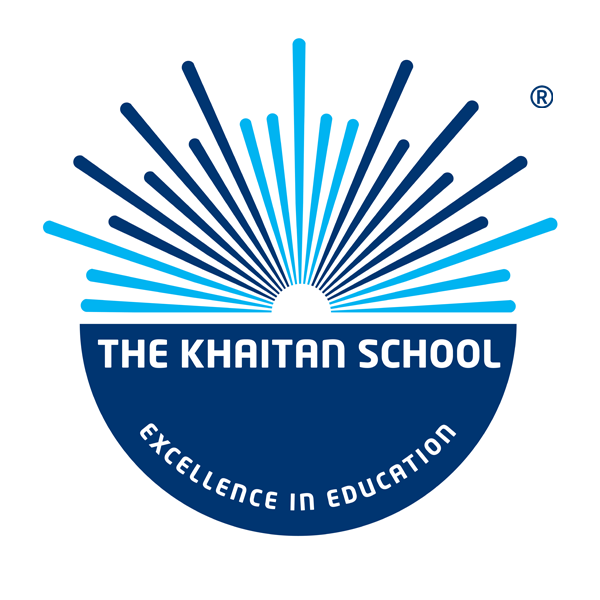The Khaitan School organized an Interdisciplinary Educational Trip for the middle wing pottery students to the Khurja Pottery Factory on 23rd September 2025. The visit aimed to provide students with hands-on learning and a deeper understanding of traditional Indian pottery, its intricate techniques, and its cultural importance.
Khurja, often called the “Ceramics City of India,” is famous for its distinctive pottery designs that are cherished not only across the country but also in international markets. The trip offered students an opportunity to witness firsthand the journey of clay — from raw material to refined art.

Learning through Experience
During the visit, students explored the step-by-step process of pottery-making — from clay preparation, shaping, designing, glazing, and firing. They interacted with skilled artisans who shared their valuable insights and experiences, helping students connect classroom learning with real-world applications. This immersive experience beautifully integrated art, history, and science, demonstrating how creativity and craftsmanship come together in traditional industries.


Vocal for Local: Supporting Indigenous Craft
In line with the government’s “Vocal for Local” initiative, the visit emphasized the importance of supporting local craftsmen and indigenous industries. Students learned how traditional art forms like pottery not only sustain livelihoods but also contribute to India’s self-reliance and cultural identity. They were inspired to value local craftsmanship and understand its role in the nation’s economic growth.

Pottery in Action
The highlight of the trip was the live pottery workshop, where students observed each stage of the craft — from shaping clay on the wheel to decorating and glazing finished products. The hands-on exposure helped them appreciate the patience, precision, and creativity that define this centuries-old art. Watching raw clay transform into elegant ceramics left the students deeply inspired.

Integration with Social Science
The trip was thoughtfully aligned with Social Science learning objectives, bridging the gap between theory and practice. Students linked concepts like community livelihoods, trade, cultural heritage, and sustainable development with the real-world practices they observed. This interdisciplinary approach allowed them to understand how geography, economics, and culture collectively shape India’s traditional industries.

The educational trip to Khurja was a meaningful and enriching experience that combined academics with cultural exploration. It deepened students’ appreciation for India’s heritage, enhanced their creative understanding, and encouraged them to value sustainable local craftsmanship.
The trip was successfully conducted under the guidance of Mr. Tritomay Dutta, Mr. Vikas, and Ms. Ragini Srivastava. It was indeed a memorable learning journey that celebrated the essence of Indian art, culture, and self-reliance.


